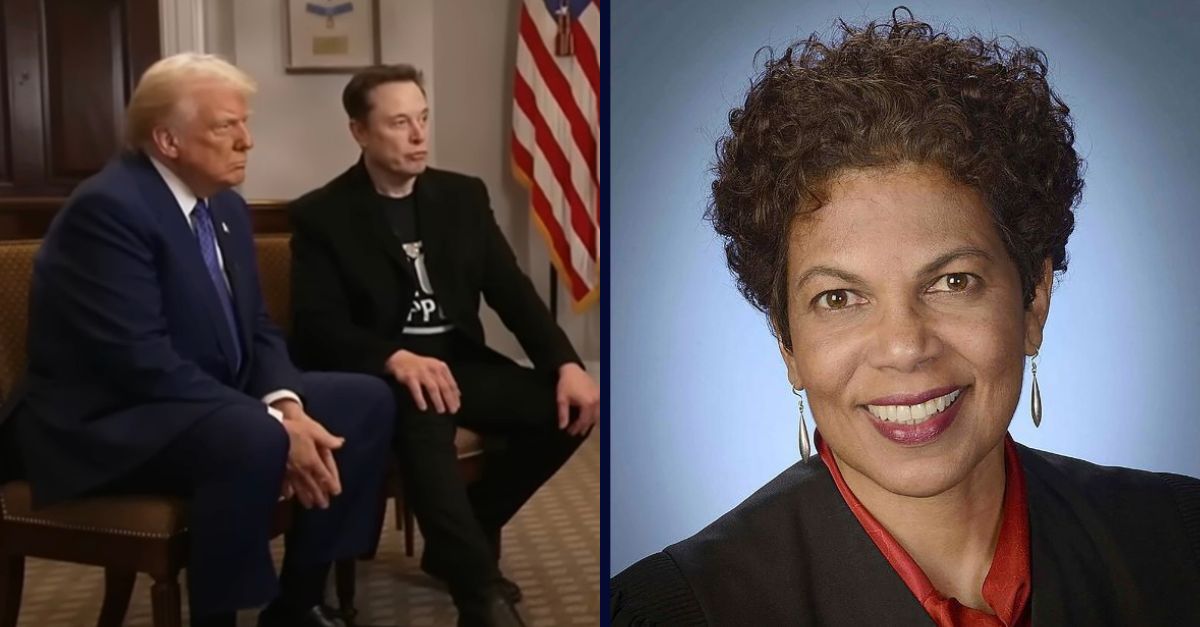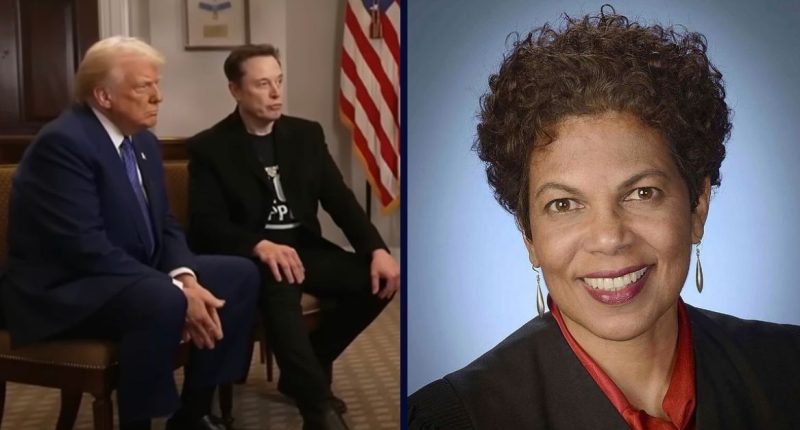
Left: Donald Trump and Elon Musk appearing on Fox News in February 2025 (Fox News/YouTube). Right: This undated photo provided by the Administrative Office of the U.S. Courts, shows U.S. District Judge Tanya Chutkan (Administrative Office of the U.S. Courts via AP, File).
A federal judge in Washington, D.C., handed the Trump administration a win Tuesday when she rejected a request to bar Elon Musk and the Department of Government Efficiency (DOGE) from accessing data and firing employees at several federal agencies in the executive branch. However, the victory may be short-lived, as the court also expressed serious concerns that Musk was an “unelected individual” who appeared to be wielding “unchecked authority” within the government.
U.S. District Judge Tanya Sue Chutkan issued a 10-page ruling declining to grant a temporary restraining order (TRO) sought by a coalition of 14 Democratic states in a lawsuit last week. The complaint claimed President Donald Trump’s granting of sweeping power to Musk and his associates at DOGE violated the U.S. Constitution’s Appointments Clause by delegating “virtually unchecked authority” to the tech billionaire without proper legal authority from Congress or “meaningful supervision of his activities.”
The plaintiffs named as defendants Trump, Musk, and DOGE and asked the court to issue the TRO to prevent further workforce disruptions and data manipulation at the hands of Musk, referred to in the complaint as “a designated agent of chaos without limitation” who was “in violation of the separation of powers.”
Following a hearing on Monday, Chutkan refused to grant the plaintiffs’ request, reasoning they had failed to sufficiently show that in the absence of a temporary restraining order, they would suffer “irreparable harm.” Such a showing is required for the court to grant the “extraordinary relief” of a TRO and the mere “possibility of irreparable harm” does not clear the threshold issue.
“On the record before it, the court cannot conclude that Plaintiffs satisfy the high standard for irreparable injury. Plaintiffs’ declarations are replete with attestations that if Musk and DOGE Defendants cancel, pause, or significantly reduce federal funding or eliminate federal-state contracts, Plaintiff States will suffer extreme financial and programmatic harm,” Chutkan wrote. “The court is aware that DOGE’s unpredictable actions have resulted in considerable uncertainty and confusion for Plaintiffs and many of their agencies and residents. But the ‘possibility’ that Defendants may take actions that irreparably harm Plaintiffs ‘is not enough.””
Chutkan also emphasized that widespread media reports that DOGE is imminently preparing another round of mass firings did not establish the requisite imminent harm necessary for the issuing of a TRO.
While the Trump administration escaped being hamstrung by another federal judge during the president’s first month back in office, Chutkan clearly signaled her belief that the plaintiffs’ allegations regarding the unconstitutionality of Musk and DOGE’s role in the government appear grounded in facts.
According to Chutkan, the plaintiffs “legitimately call into question what appears to be the unchecked authority of an unelected individual and an entity that was not created by Congress and over which it has no oversight.”
She wrote (citations omitted):
That said, Plaintiffs raise a colorable Appointments Clause claim with serious implications. Musk has not been nominated by the President nor confirmed by the U.S. Senate, as constitutionally required for officers who exercise “significant authority pursuant to the laws of the United States.” Bypassing this “significant structural safeguard[] of the constitutional scheme,” Musk has rapidly taken steps to fundamentally reshape the Executive Branch. Even Defendants concede there is no apparent “source of legal authority granting [DOGE] the power” to take some of the actions challenged here. Accepting Plaintiffs’ allegations as true, Defendants’ actions are thus precisely the “Executive abuses” that the Appointments Clause seeks to prevent








